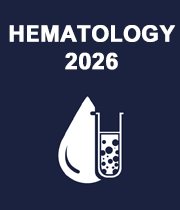Blood Banking
A blood bank is a facility that stores and preserves blood collected as a consequence of blood donation for later use in blood transfusions. The term "blood bank" usually refers to a section of a hospital where blood products are stored and adequate testing is carried out (to reduce the risk of transfusion related adverse events). However, it can also refer to a collecting facility, and some hospitals provide collection services. Blood banking entails the collection, processing, testing, separation, and storage of blood. A type and screen should be the first step in blood bank testing. A kind and screen are only valid for 3 days. The absence of preformed antibodies is indicated by a negative screen. A positive screen means the blood bank will need more time to identify the nature of the antibody; if the antibody is clinically important, the blood bank will need to find antigen-negative blood to match.



Title : Acute intermittent porphyria: A neurological dilemma obscured by ubiquitous fgastrointestinal presentation
Mayank Anand Singh, Mimer Medical College, India
Title : Comprehensive symptom management and supportive nursing care in a preterm toddler undergoing HSCT for pyruvate kinase deficiency
Tran Thi Dung, Vinmec International Hospital, Vietnam